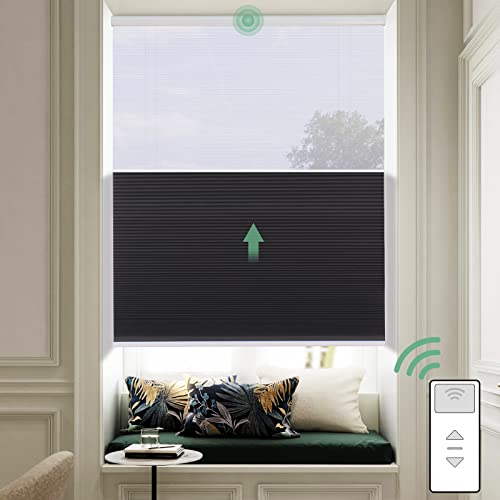Smart Blinds: A Revolution in Home Automation
In an era dominated by technological advancements and the ever-expanding Internet of Things (IoT), smart devices have become integral to our daily lives. One such innovation that seamlessly integrates technology into our living spaces is the smart blind. These intelligent window coverings are transforming traditional blinds into futuristic, automated marvels that offer a myriad of benefits ranging from energy efficiency to enhanced convenience.
Smart blinds are not just about automating the process of opening and closing window coverings; they represent a significant leap forward in home automation. These intelligent window treatments are equipped with sensors, connectivity features, and programmable controls, making them an integral part of the smart home ecosystem.
The primary advantage of smart blinds lies in their ability to adapt to changing environmental conditions. Built-in sensors, such as light and temperature detectors, enable the blinds to respond dynamically to the surrounding environment. For instance, on a scorching summer day, the smart blinds can automatically close to block out the sun, reducing indoor temperatures and minimizing the need for air conditioning. Conversely, on a chilly winter morning, the blinds can open to harness natural sunlight, aiding in passive heating and reducing reliance on artificial heating systems.
The connectivity aspect of smart blinds is another compelling feature. Most smart blind systems can be integrated with popular home automation platforms like Amazon Alexa, Google Home, or Apple HomeKit. This means users can control their blinds using voice commands or through dedicated smartphone apps, adding an unprecedented level of convenience to daily life. Imagine waking up in the morning and simply saying, "Good morning, open the blinds," as your window coverings gracefully glide open to welcome the day.
Beyond the practical aspects, smart blinds contribute significantly to energy efficiency. By optimizing natural light intake, these blinds help reduce energy consumption, subsequently lowering utility bills and minimizing environmental impact. The ability to schedule blind movements based on daily routines or occupancy patterns ensures that energy is utilized efficiently, aligning with the growing demand for sustainable living.
Security is another dimension where smart blinds make a meaningful impact. When integrated with a home security system, these blinds can simulate occupancy by opening and closing at varying intervals, creating the illusion that someone is home. This feature enhances home security by deterring potential intruders and providing homeowners with peace of mind, whether they are at work or on vacation.
The customization options offered by smart blinds also contribute to their popularity. Users can program specific scenes or settings for different times of the day, creating a personalized and comfortable living environment. Some advanced systems even allow users to set blinds to adjust based on real-time weather conditions, ensuring optimal comfort and energy efficiency.
In conclusion, smart blinds represent a seamless convergence of technology and everyday living. As the demand for smart home solutions continues to rise, these intelligent window coverings are poised to become an essential element in modern households. With their energy-efficient features, connectivity options, and adaptability to environmental conditions, smart blinds are not just a luxury; they are a practical and sustainable solution for the homes of the future. Embrace the revolution in home automation – welcome the era of smart blinds.



Comments
Post a Comment